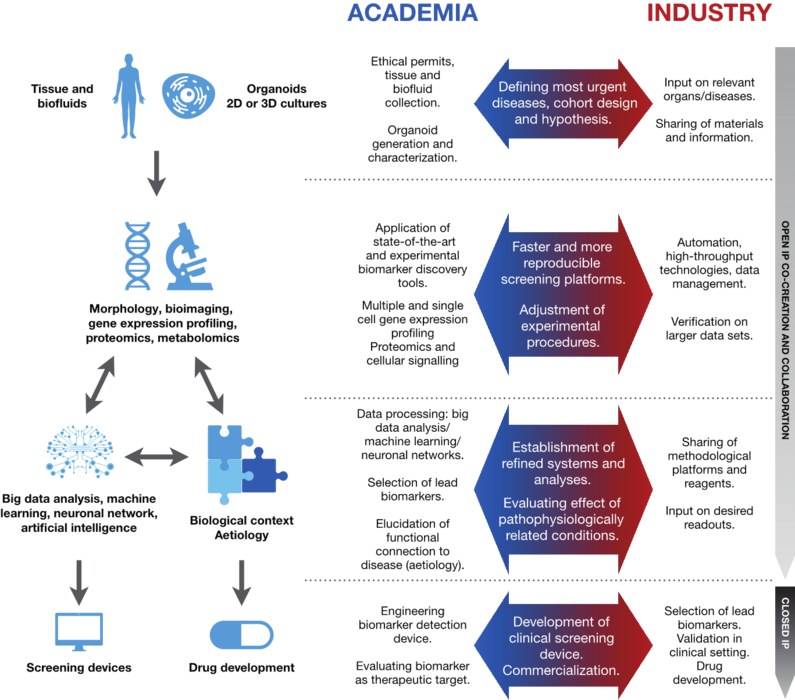A biomarker is a measurable indicator of disease or a specific condition in a patient, such as chemical or structural alterations in tissues and the composition of body fluids. Many, if not all, of the prevalent human diseases are associated with specific biomarkers.
Identified biomarkers may be detected in patient samples using fast molecular and cellular analyses. For the individual patient, new computational methods provide an opportunity to combine large datasets in a meaningful manner, which provides a much stronger diagnostic prediction.
If we combine these technologies with new innovative bedside detection principles, diagnostic prediction will become accessible to any person at risk. Importantly, a detailed profiling of molecular changes will allow practitioners and researchers to find the cause of the disease and provide new target leads for molecular intervention.
Because of the ageing populations cancer, neurodegenerative, cardiovascular and musculoskeletal diseases are major societal challenges. New and better biomarkers will be immensely important for earlier detection of these diseases and will help dramatically increase the therapeutic success rate.
Furthermore, by studying the connection between the biomarker and disease course, new therapeutic targets may be identified. If so, they will become available to participating companies for further commercialisation and economic benefit of the country.

